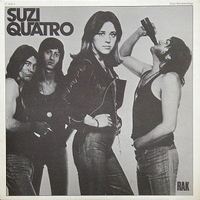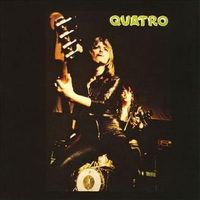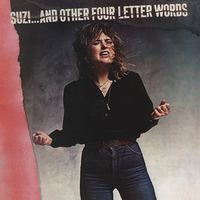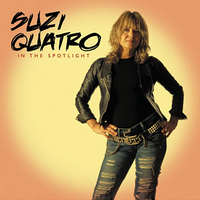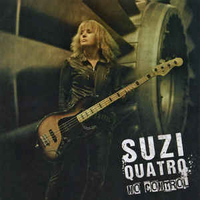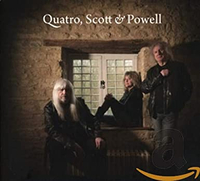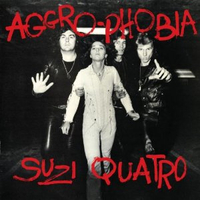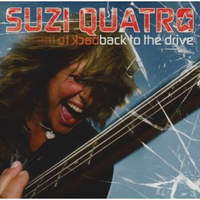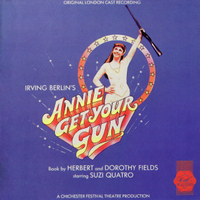If Suzi Quatro hadn’t existed we’d be inhabiting a very different musical landscape. Until the diminutive leather-clad Detroit fireball emerged out of the exclusively male preserve of the 70s glam scene, the role of female rock and pop performers was largely limited to simpering subserviently in unattractive pinafore dresses.
Suzi Quatro changed all that. With an undeniable charisma, a refusal to accept recognised boundaries and a positively feral approach to the delivery of visceral rock’n’roll, Suzi Q inspired (both directly and indirectly) generations of aspiring female artists.
She ascended rapidly to household-name status following her debut Top Of The Pops performance with Can The Can in the summer of ’73. Grappling with a bass of almost equal height and fronting a band of surly brawlers, she was a fiery, fashionably androgynous apparition.
An untamed, hard-rocking tomboy, apparently oblivious to a sexual magnetism that was irresistible catnip to boys of a certain age (not to mention their otherwise TOTP-averse fathers and a not inconsiderable number of their sisters).
But behind her raw enthusiasm and flaming youth, Quatro was no neophyte. Born into a large blue-collar Detroit family in 1950, Suzi was seduced into a love of rock’n'roll at the age of six by the sight of Elvis Presley singing Don’t Be Cruel on The Ed Sullivan Show. She wanted to be him so much, she never even registered that he was of a different gender.
Almost immediately Suzi joined her semi-pro musician father in his Art Quatro Trio. When Suzi was 14, Art bought her the Fender Precision bass that she still plays today. A teenage go-go dancer for a local TV show, she joined her sister Patti (latterly of Fanny) in the Pleasure Seekers. A couple of local hits later, the garage band toughened rockwards and changed their name to Cradle.
Enter Mickie Most. Midas-alike record producer and Rak Records mogul Most moved Suzi to England, and signed and primed her for stardom, teaming her with guitarist Len Tuckey, drummer Dave Neal, keyboard player Alistair McKenzie and Sweet’s seemingly infallible songwriting team of Nicky Chinn and Mike Chapman.
They wrote Can The Can for her. She performed it on Top Of The Pops in skin-tight leather, and the rest is Herstory.

...and one to avoid
You can trust Louder Our experienced team has worked for some of the biggest brands in music. From testing headphones to reviewing albums, our experts aim to create reviews you can trust. Find out more about how we review.

